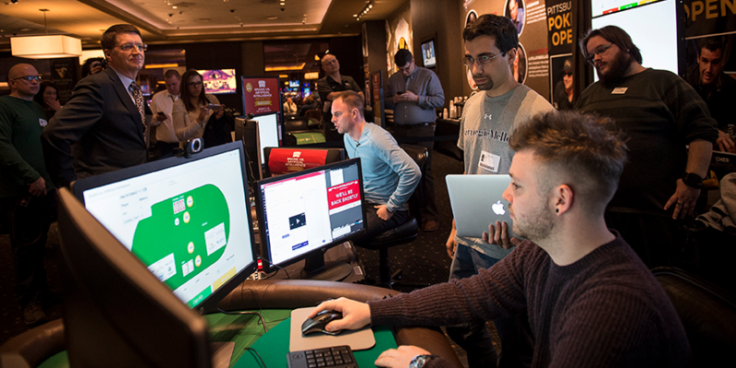Artificial Intelligence Is Dominating A Poker Tournament

Computers are now defeating us in casino table games. Libratus, an Artificial Intelligence system developed by researchers from Carnegie Mellon University has been squaring off against four professional poker players since Jan 11. Libratus is up nearly $800,000 through 80,000 hands of heads-up no limit Texas Hold’em against the four pros.
“It’s not about the money,” said Jason Les, a professional from Costa Mesa, CA, in an interview with The Verge. “It’s about preserving human dignity, and it’s not going well.” With 40,000 hands left to play, the $800,000 deficit is nearly impossible for the humans to make up.
Libratus is not wired specifically for poker; therefore, it relies on algorithms of the rules of poker to develop its own strategy. Changes are made to Libratus by researchers from Carnegie Mellon while the players are sleeping in an effort to perfect the entire system. Libratus also does not have to factor in human emotion while playing. It doesn’t shy away from risky bets or have the ability to bluff. It analyzes the hand and plays the most logical cards available, but the move is often different than anything a human would ever do. However, the developers are hoping to move beyond playing poker and use Libratus to develop self-driving cars, complete business deals and improve internet security.
This is not the first time Artificial Intelligence has challenged professionals in strategy games. In 2011, an IBM developed computer “Watson” faced Ken Jennings and Brad Rutter in Jeopardy. Jennings and Rutter were two of Jeopardy’s most successful contestants, but Watson easily won the first game by $25,000. “Deep Blue” relied on identifying keywords in questions and coming up with answers based on applying those words to certain algorithms.
In 1996, another IBM supercomputer “Deep Blue” was used to play World Chess champion Garry Kasparov. They played two separate six game matches. “Deep Blue” won the first ever game, but Kasparov won the series 4-2. They reconvened in May 1997 and “Deep Blue” won the series 3.5-2.5.
The AI Texas Hold’em tournament will conclude as soon as the 120,000 hands are completely finished. The tournament is hosted by Rivers Casino in Pittsburgh in support of an effort to expand the use of artificial intelligence. The website is provide live updates, statistics and audio of the match.
© Copyright IBTimes 2025. All rights reserved.



















